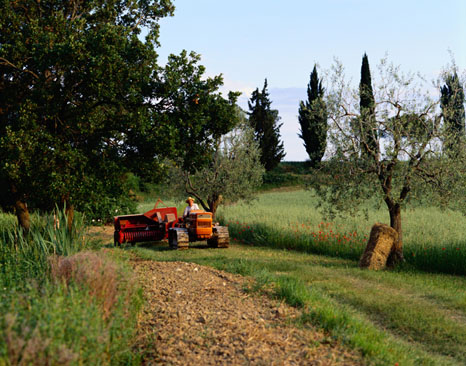|
|
Social Security Vital in Rural Communities
By Anita Weier, The Capital Times
August 10, 2005

Wisconsin's rural communities would be affected more harshly than urban communities by privatization of Social Security, a new study by the Institute for America's Future shows.
The study, released Tuesday in Stoddard, Wis., by U.S. Rep. Ron Kind, D-La Crosse, found that rural communities in Wisconsin depend on income from Social Security 36 percent more than non-rural communities.
"Additionally, Wisconsin's rural communities have a higher percentage of senior citizens, residents who depend on Social Security's disability insurance and elderly women receiving Social Security than the state's non-rural communities," the Washington, D.C.-based institute said.
In Wisconsin, 45 out of 72 counties are considered rural, meaning that they have a population of less than 50,000, the study said. Total personal income in those counties was $27.98 billion in 2003, with Social Security income accounting for $2.27 billion of that - 8.1 percent of the total.
By contrast, Social Security provided 5.2 percent of the total personal income to individuals in Wisconsin's 27 urbanized counties.
"Rural Americans tend to be older and more likely to depend on Social Security. More than 90 percent of counties in America with high senior populations (20 percent or more) are rural counties," the study said.
"In 2001, 20 percent of rural American were 70 years or older, significantly higher than the 15 percent of seniors living in metropolitan communities. Thirteen percent of rural seniors live in poverty, whereas only 9 percent of seniors in metropolitan communities are poor."
Kind, appearing in Stoddard as part of a statewide celebration of the 70th anniversary of Social Security, said it "has proven to be one of the greatest poverty-reducing programs ever created in this country, providing millions of Wisconsin workers with a guaranteed return on their retirement investments."
He said in prepared remarks that rural communities in particular rely on Social Security to provide seniors an opportunity to age "with dignity and independence."
A snapshot from the report regarding rural Wisconsin and Social Security shows that:
. 236,210 rural Wisconsinites receive Social Security checks each month.
. 174,905 of those receive retirement benefits.
. 29,795 receive disability insurance benefits.
. 31,510 receive survivors insurance benefits.
"Work in rural communities can be very dangerous, making Social Security's disability insurance protections vital," the study said.
"By nearly every measure, Social Security has a larger impact on the livelihoods of individuals, families and communities in rural America than non-rural America. The president's proposal to change Social Security includes mandatory benefit reductions for nearly all American workers and optional private accounts."
The Institute for America's Future and the Center for Economic and Policy Research estimate that for the typical Wisconsin worker, the president's proposal would result in a lifetime benefit reduction of over $162,058, even after average gains to a private account are considered.
Gov. Jim Doyle chimed in to defend Social Security during a ceremony in the State Capitol on Monday, as he proclaimed this week Social Security Week.
"Privatization would turn Social Security into a risky system of winners and losers - and the only sure winners would be the Wall Street brokers who would make millions at the expense of seniors' retirement," Doyle said. "The president's plan would take the 'security' out of Social Security."
|
|



